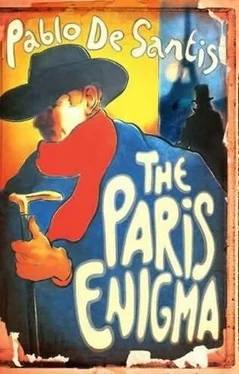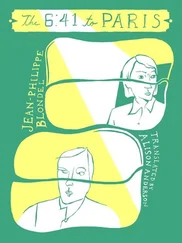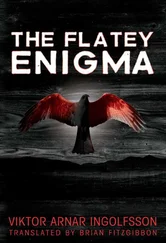“Did he send you to Grialet?”
“Arzaky has his agents. But sometimes he doesn’t trust us. Viktor believes that Grialet killed Darbon.”
“And that’s not true?”
“No.”
I felt her hand on my arm.
“Come toward the light. Your boots are so shiny. Is that Argentine leather? ”
“Yes, but that’s not why they shine. I polish them with a cream my father makes.”
“It’s raining. But your boots still gleam.”
“And my father says that this polish also cures wounds.” “I could use a bottle of that.”
“I’ll send you one when I go back to my country. Do you have black shoes?”
“No, but I’ll have to get either some shoes or a wound so I can test the cream’s effectiveness.”
A creaking noise was heard in the dressing room. There was a coat stand, a shapeless mountain heaped with garments. For a moment I was afraid that she had led me into a trap because it was obvious that someone was hiding there.
“You can come out,” said the Mermaid.
I thought maybe it was a hidden lover, I thought maybe it was Grialet, maybe even Arzaky, but it was Greta. I felt a mix of rage and relief.
“These theaters are labyrinths. She can show you the way out.”
I was sorry that the show ended so soon. I was starting to be like the people who always leave the theater last. The Mermaid closed the door to her dressing room. Greta and I walked out together.
“Are they hiring performers? It’s a good idea to try a new career. I don’t think Castelvetia can keep you much longer as an acolyte.”
“The detectives have more important things to worry about,” she said in an untroubled voice. “Castelvetia’s secrets aren’t a pressing subject.”
“Caleb Lawson is going to go after him, sooner or later.”
“Castelvetia doesn’t care about Caleb Lawson or his Hindu. He beat him once and he’ll beat him again. He’s worried about Arzaky.”
“Why Arzaky?”
“He wouldn’t tell me. But he talks about it in his sleep.”
It looked like she regretted having told me. I didn’t dare ask her why she knew so much about Castelvetia’s dreams. Did she secretly go to the Numancia Hotel for clandestine meetings? Or was he the one who came to her?
We arrived at the hotel, but had to keep a safe distance away because the detectives were talking at the entrance. The acolytes were getting ready to march, in formation, toward the Nécart.
“Why did you go to see the Mermaid?” I inquired.
“I wanted to ask her about the Case of the Fulfilled Prophecy.”
“That’s an old case.”
“It’s still unresolved. Castelvetia thinks that Grialet was the guilty party that time, but even though Arzaky sent the Mermaid over to investigate Grialet, they weren’t able to prove anything. Perhaps the Mermaid protected Grialet then. Perhaps she’s protecting him now.”
“And what did she tell you?”
“Nothing. She talked about Arzaky and she sang a song, the song she had sung the night they met. I thought after that she might be willing to talk. But something interrupted her.”
“What?”
“The footsteps of an idiot.”
Now Greta looked at the detectives and assistants, who were disappearing into the night.
“Is this the first time you’ve seen them?”
“No. I’ve been here before. I like to watch them, to imagine the day when I’ll enter the circle of acolytes. If I can become a member, it will be as if my father did too.”
I didn’t raise any objections to her fantasies. Who was I to pass judgment, among the ambitions and worldly matters, on what was possible and what was impossible? Greta took a step back and the streetlight illuminated her; but her face shone so brightly that it looked as if she were the one illuminating the streetlight. It was the face of a girl looking through a store window at a shiny toy she knew she would never possess.
The next day, at ten in the morning, I was in front of the theater again. Some acolytes were with me, as well as their respective detectives: Magrelli, Hatter, Araujo. Then Zagala arrived, wearing a hat that exaggerated his nautical air. He was complaining, saying that Benito should have been there but he was still sleeping. A policeman tried to keep the group from getting through, but Magrelli, used to wrestling with the carabiniere, had no problem getting rid of him. He f labbergasted him with convoluted pronouncements of authority, constantly pointing upward with his index finger, indicating his friendship with very important civil servants, and showing him papers affixed with bureaucratic-looking signatures and seals.
“You always have to show the police some piece of paper. They are very sensitive to written documents,” he explained to us later.
Captain Bazeldin went white when he saw the detectives burst into the room and climb the stairs toward the stage. I followed their impatient and happy march like an automaton. The fights had been forgotten and they were once again a cohesive group, now that crime had called to remind them that they had a purpose in life.
“The show is canceled,” said the inspector. “We don’t need any actors.”
But he couldn’t stop them; they surrounded him like a chorus, all questioning him at once, heaping on the praise and f lattery just to distract him. On the stage, large blocks of ice created a sort of frozen grotto. The Mermaid’s body was sunk into a circular lagoon in the center. Her black hair f loated around her. Blood had traced streaks in the water, like veins in marble. Her eyes were closed. Her lips were black, holding on to the kiss of death. I looked at her without sadness or horror, as if there were no relationship between the cold scene before me and the splendid woman I had spoken to the night before. I could still smell the mix of perfumes in her dressing room. I looked at my hands, the hands that had touched the photograph. I wondered if it wasn’t that photograph that had been the passport to the frozen place she now inhabited.
The captain, who was unable to contain the detectives, tried one last gesture of authority, and austerely gave the order for the body to be taken out of the ice. Four policemen knelt down and, after rolling up their sleeves, plunged their arms into the water. They reached hands and ankles and pulled up, insecurely and brusquely. The Mermaid hadn’t lost her beauty in death; one could imagine that all her arduous insistence on green costumes, grottos, and her stage name had been the preparation for this perfect scene of underwater sleep. But when she was pulled out of the water, with her hair oily and sticky and her slack limbs taking on the slapdash poses of a broken doll, we were keenly aware that she was no longer the Mermaid; she was a corpse. Bazeldin knelt down out of pity, wiped a handkerchief over her face, cleaning it of oil, hair, and blood. Her lips were now white.
The rescue maneuver had left the nape of the Mermaid’s neck showing. It was covered in blood. Without realizing what I was doing, I took a step forward and almost fell into the water. Benito, who had just arrived and was still buttoning his shirt, held me back.
“What’s going on? Did you know her?”
I managed to say, after much effort, “No.”
200 •Pablo De Santis
“And Arzaky?” asked Magrelli. “Where is he?”
“He was the first one here,” the chief of police responded with annoyance. “I was ready to throw him out, because his arrogance aggravates me, but luckily that wasn’t necessary. He left on his own. As soon as he saw her he took off with those giant strides, as if he had urgent business to attend to. This case has nothing to do with you detectives, so if you don’t mind I’m going to have to ask you all to leave. The World’s Fair is expecting you.”
Читать дальше












